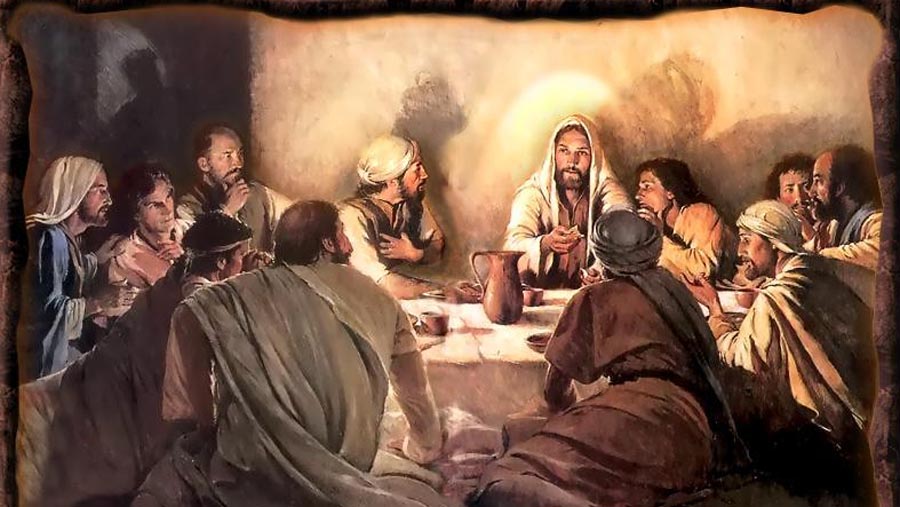
Are you a Christian? If you are, please raise your hand.” I suspect most readers of this column would raise their hands. But if I were to ask, “Are you a disciple of Christ? If you are, please raise your hand,” I wonder how many of you would do so?

For the longest time many of us have functioned with a two-tier understanding of the Christian faith. We have been told that there were two types of Christians. If you accepted Christ as your Saviour, you were saved. You had Christ in your life. You would go to heaven when you died. You received all the benefits of the Christian faith. But if you were really serious about your faith, you would then commit yourself to all the disciplines expected of those who follow Christ — reading the Bible regularly, memorising Bible verses, sharing the Gospel with those who do not know Christ, etc. If you were really serious about the Christian faith you would become a disciple.

Therefore, all who responded to the Gospel were Christians. But only those who were serious about their faith were disciples. I have long suspected that there was something wrong with this picture. This feeling has become stronger in recent times as I examined the subject of discipleship again in preparation for various projects I am doing. I have come to see that this two-tier understanding of the Christian faith is not only unbiblical it also results in a flabby Christianity because many followers of Jesus think that discipleship is an option. Perhaps what concerns many is the fear that we will imply that salvation is by works; that we are saved by our commitment to spiritual disciplines. The Bible is utterly clear that we can never earn our salvation (Ephesians 2:8). But the heart of Christianity is our relationship with a Christ who asks us to carry our crosses and to follow Him.
Whoever wants to be my disciple must deny themselves and take up their cross and follow me. For whoever wants to save their life will lose it, but whoever loses their life for me and for the Gospel will save it.
(Mark 8:34-35 NIV)
Last Sunday I preached from Acts 11:19-30, a passage that has this interesting observation:
Then Barnabas went to Tarsus to look for Saul, and when he found him, he brought him to Antioch. So for a whole year Barnabas and Saul met with the church and taught great numbers of people. The disciples were called Christians first at Antioch.
(Acts 11:25-26 NIV)
This means that followers of Jesus were disciples of Jesus, and it was only at Antioch that they were called Christians. Darrell L. Bock comments:
In Antioch the testimony to Jesus as the Christ is so strong that community members are called Christians . . . for the first time. (Darrell L. Bock, Acts, Grand Rapids, MI: Baker Academic, 2007, 416.)
It is important to note that “Christians” was not a term that the believers used for themselves. This was a term that society used on them. This note from the HCSB Study Bible brings out the implication of this development.
The term Christians probably came from Romans who labelled Jesus’ followers in Antioch
“little Christs.” Though it was likely intended as an offense, the label is actually an honor insomuch as it indicates disciples are living Christlike lives. (HCSB Study Bible, Nashville, TN: Holman Bible Publishers, 2007, 1882-83.)
Have we got it all wrong? According to Acts, all followers of Christ are disciples. And if we are doing discipleship right, the onlooking world sees Christ in us and calls us Christian. This is totally different from an approach that calls all followers of Jesus “Christians” and only those serious about their faith “disciples”.

Perhaps it is helpful to review what the word “disciple” really means. It basically means learner, student or apprentice. A disciple of Jesus Christ is someone who has responded to the good news of the Gospel and has chosen to be a follower of Christ, learning from Him how one ought to live. And if we do this right, we become more and more Christ-like. “The student is not above the teacher, but everyone who is fully trained will be like their teacher” (Luke 6:40 NIV).
Today the word “Christian” is no longer used in the same sense that it was used in the time of the early church. If it were, it would be a term the non-Christian world confers on true disciples of Jesus who exhibit Christ-likeness through their lives.
I suggest that we get rid of the usual two-tier understanding of the Christian faith once and for all. The Christian community is not divided between converts who enjoy the benefits of the Gospel, and a smaller group of Christians who take their Christian life seriously and qualify to be disciples. All followers of Christ are disciples, following Christ to learn from Him how we ought to live. The difference is whether we are immature disciples or we are making progress in our discipleship journey.
We live in exciting times. More than ever, a lost world needs to know about Christ and the Gospel. We need all hands on deck. May everyone who has responded to the Gospel understand that they are disciples. Then let us move on to live out our discipleship. Maybe we might qualify to be called Christians.
Rev Dr Tan Soo-Inn is the Training Consultant and Chairman of Graceworks. Since 1985, Soo Inn has been journeying with people through his ministry of preaching/teaching, writing and mentoring. Please visit the current website for complete story: http://graceworks.com.sg/disciples-and-christians
Dear Viewers in Christ, if you find this article edifying to you, please share with your friends or loved ones by using the social media plugs (Share, Email to this article). The Lord will surely bless you as you bless others. May the Lord’s peace and love be with you. Amen.
Reference:




Leave a Reply